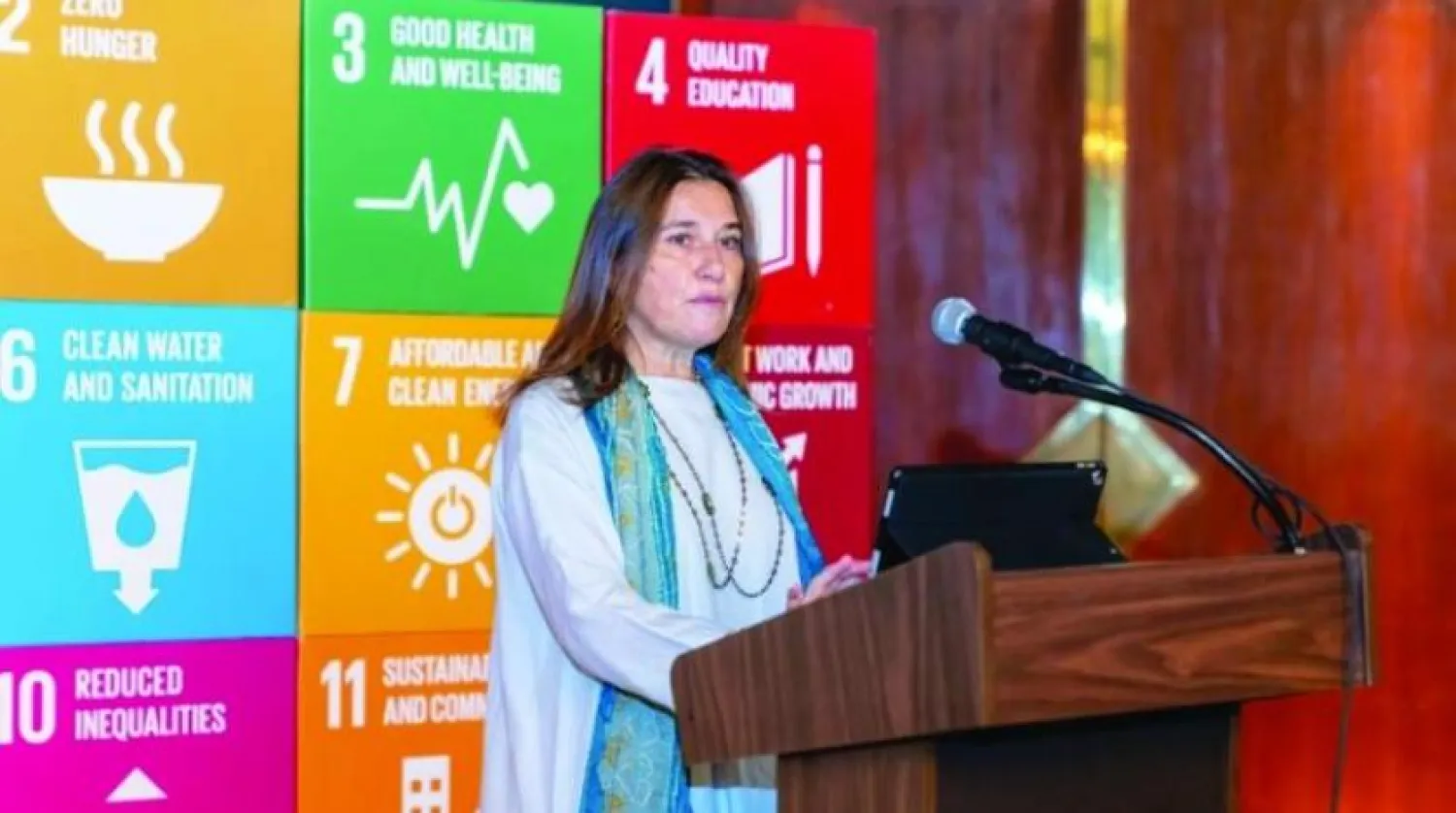United Nations Resident Coordinator in the Kingdom, Nathalie Fustier, said that partnership with Saudi Arabia was moving to a new stage, pointing to the progress achieved by the Kingdom in sustainable development.
In remarks to Asharq Al-Awsat, Fustier said that the UN partnership with the Saudi government has evolved over the years and continues today amid a new stage in the field of sustainable development, which will direct the general work of the international organization in the Kingdom from 2022 to 2026 to cooperate primarily through three elements of sustainable development.
Fustier participated in dialogue sessions between the UN and Saudi Arabia, in Riyadh on Monday, on ways to achieve Goal 17 of the Sustainable Development Goals, namely revitalizing the global partnership for sustainable development.
The UN official pointed to Saudi Arabia’s sustainable development priorities stipulated in Vision 2030, its efforts achieve the 2030 Agenda of the United Nations and the 17 Sustainable Development Goals, and reform the UN development system through four strategic areas, including people, planet, prosperity and peace.
In this regard, she stressed the need to combine the efforts of all sectors and segments of society in order to attain the required change and achieve the goals of sustainable development.
Fustier said that the UN partnerships with the Kingdom have expanded in recent years in all sectors, including the strategic partnership with government agencies, the private and educational sectors, in addition to civil society institutions.
She noted that through Vision 2030, the Kingdom was seeking to promote the renaissance of the Saudi economy to become one of the leading economies in the world.
The UN resident coordinator told Asharq Al-Awsat that the support her office received from the Saudi government and the relevant authorities was a great contribution to strengthening UN efforts towards achieving the sustainable development goals.
She added that the Kingdom has recently established the Steering Committee for Sustainable Development, which consists of 20 national bodies with the aim of coordinating governmental efforts and supervising performance to achieve the sustainable development goals.
As for the role of the private sector, Fustier pointed to the Saudi call on companies across the country to align their operations and strategies with ten comprehensive principles in the areas of human rights, labor, environment and anti-corruption by joining the local network of the United Nations Global Compact, which has reached 46 members so far, with the support of the Ministry of Economy and Planning and the Federation of Chambers of Commerce.









